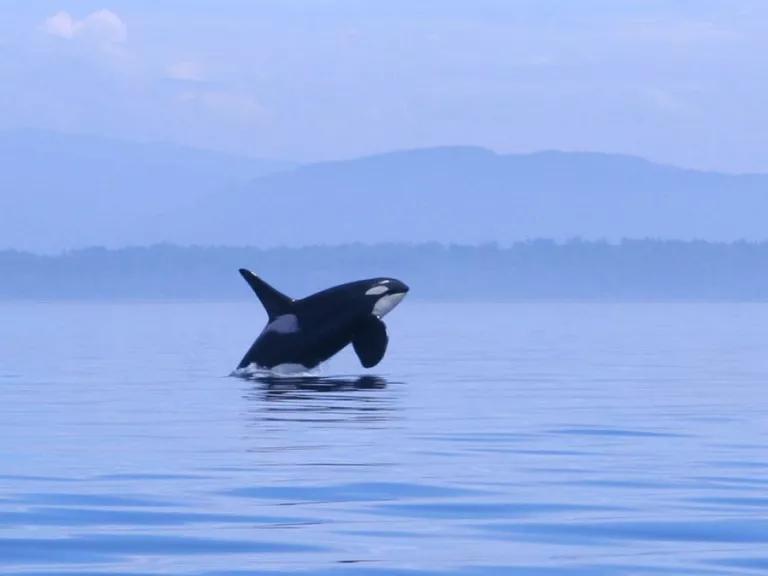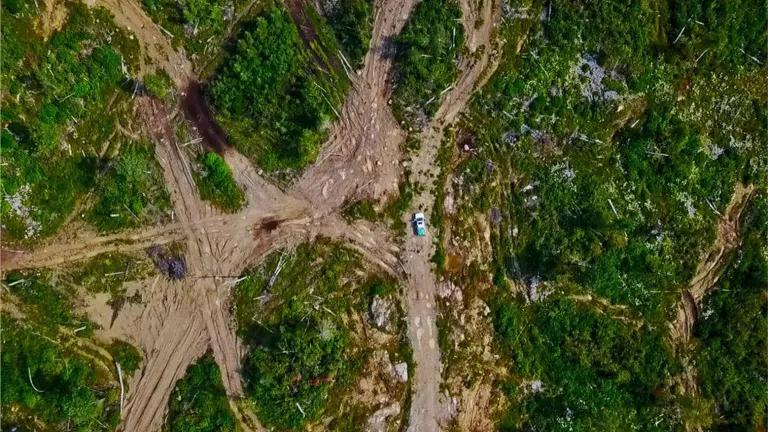Tar Sands Tankers and Consultation Failures Doom Pipeline
In a major win for First Nations, the environment, and our global climate, a Canadian court has struck down the Trudeau government's approval of the Trans Mountain pipeline expansion.

A protest against the Kinder Morgan Trans Mountain pipeline expansion in Vancouver, British Columbia, May 29, 2018
Darryl Dyck/The Canadian Press via Associated Press
In a major win for First Nations, the environment, and our global climate, a Canadian court has struck down the Trudeau government's approval of the Trans Mountain pipeline expansion.
This morning, the Canadian Federal Court of Appeals struck down the Canadian government’s approval of Kinder Morgan’s Trans Mountain pipeline expansion. The ruling marks a stunning development in a battle that has pitted Prime Minister Justin Trudeau—whose rhetoric on climate change sounds so lovely—against many environmentalists, whose early support of the prime minister has soured over time as his actions belied his climate-friendly speeches.
In May, Trudeau made the wrongheaded and perplexing decision to purchase the existing Trans Mountain line (and the rights to build the new pipeline), setting up the stunning mess that his government finds itself in today. Unsurprisingly, moments after the ruling came down, Kinder Morgan shareholders voted to complete this sale, a move that became a no-brainer given the years of delay in construction that could follow today’s ruling. It’s unclear whether the Canadian ministers in charge of the deal will now exercise their right to exit the deal, a move that would leave the project with no backers at all.
NRDC has been opposed to all major new tar sands pipelines proposed over the last decade. Existing export capacity out of Northern Alberta’s tar sands is already substantial and has allowed the industry to grow at an extraordinary rate over the same period that calls for dramatic action on climate change have grown daily.

Southern Resident killer whale #J-27 'Blackberry' leaping from the water off San Juan Island, Washington
But among the bunch, the Trans Mountain expansion is an extraordinary stinker. It would traverse the territories of numerous First Nations, cross some of the wildest portions of British Columbia, imperil spawning habitat for endangered salmon runs, and load hundreds of oil tankers—with a substance that cannot be effectively cleaned up from water—for transport through the critical habitat of the few remaining Southern Resident killer whales. The whole world now knows about that last point after we witnessed a grieving orca—J35, or Tahlequah—carry her dead calf for more than two weeks.

Salmon navigating upstream to spawn
In a terse summary of the decision, the court embraces the importance of considering the full scope of risks the Trans Mountain expansion would create if built, something Canadian regulators failed to do. In the two-pronged decision, the judge wrote:
The Board unjustifiably defined the scope of the Project under review not to include Project-related tanker traffic. The unjustified exclusion of marine shipping from the scope of the Project led to successive, unacceptable deficiencies in the Board’s report and recommendations. As a result, the Governor in Council could not rely on the Board’s report and recommendations when assessing the Project’s environmental effects and the overall public interest.
Followed by a similar finding regarding the most important phase of indigenous consultation:
[A]t the last stage of the consultation process prior to the decision of the Governor in Council, a stage called Phase III, Canada’s efforts fell well short of the mark set by the Supreme Court of Canada. Canada failed in Phase III to engage, dialogue meaningfully and grapple with the real concerns of the Indigenous applicants so as to explore possible accommodation of those concerns. The duty to consult was not adequately discharged.
And none of that even gets at the climate problem created by this project and the two others supported by the Trudeau government: the new Line 3 and Keystone XL. Together, the three pipelines would facilitate growth in tar sands production to the tune of more than two million bpd. Unlike other oil fields, tar sands projects produce for very long periods, meaning that new production would be locked in for at least 50 years, creating a huge impediment to the global effort to decarbonize our economies by midcentury.
This was a bad project from the start, and today’s ruling provides a clear picture of some of its major deficiencies. Today is a good day for indigenous rights, for some of the West Coast’s most treasured waters, and for the global climate.




